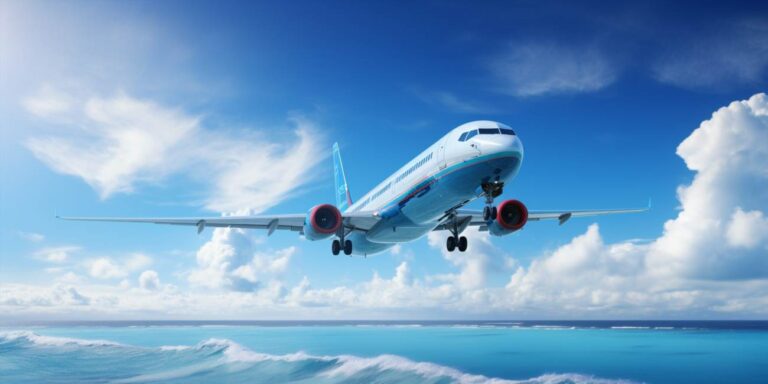One key aspect that defines Airbus planes is their commitment to fuel efficiency and environmental sustainability. These aircraft are equipped with state-of-the-art engines and aerodynamic designs, setting new standards for eco-friendly air travel. The incorporation of advanced materials and technologies contributes to reduced carbon emissions, making Airbus a pioneer in the pursuit of greener aviation.
With a diverse range of models, each tailored to specific needs, Airbus has successfully captured the aviation market. From the single-aisle A320 family to the long-range capabilities of the A350 XWB, these planes cater to various requirements of airlines worldwide. The adaptability and efficiency of Airbus aircraft make them the go-to choice for airlines seeking performance and reliability.
One of the distinguishing features of Airbus planes is their emphasis on passenger comfort and experience. Spacious interiors, large windows, and advanced entertainment systems contribute to a pleasant journey for travelers. The A380, known for its double-deck configuration, has redefined the concept of luxury in the skies, providing an unmatched flying experience.
When it comes to safety, Airbus implements cutting-edge technologies and rigorous testing processes. The incorporation of fly-by-wire systems, advanced avionics, and comprehensive safety measures ensures that Airbus planes adhere to the highest industry standards. This dedication to safety has established trust among both airlines and passengers alike.
From a technological standpoint, Airbus continues to push boundaries with innovations such as the Airbus A220‘s advanced aerodynamics and the integration of digital solutions for enhanced connectivity. These developments not only showcase the brand’s commitment to staying at the forefront of aviation technology but also pave the way for the future of air travel.
Airbus aircraft cabins: smart design for optimal comfort
Airbus has revolutionized the aviation industry with its innovative approach to aircraft cabin design. The cabins of Airbus aircraft are meticulously crafted to ensure optimal comfort for passengers, blending cutting-edge technology with smart design principles.
The use of ergonomics is a cornerstone of Airbus cabin design, with every element meticulously planned to enhance the passenger experience. Seating arrangements are strategically designed to maximize space utilization while providing ample legroom. The seat materials are carefully selected for durability and comfort, ensuring a pleasant journey for passengers of all durations.
One of the standout features of Airbus cabins is the integration of smart technology. The in-flight entertainment (IFE) systems are state-of-the-art, offering a diverse range of options for passengers to stay entertained throughout their journey. Touchscreen controls and intuitive interfaces make it easy for passengers to personalize their entertainment experience.
Moreover, Airbus has focused on creating an environment that promotes well-being during flights. Lighting systems are designed to mimic natural daylight patterns, helping passengers adjust to different time zones and reduce jet lag. Additionally, advanced air purification systems contribute to a healthier cabin environment by minimizing airborne contaminants.
The emphasis on fuel efficiency is also evident in Airbus cabin design. Lightweight materials are used wherever possible without compromising safety, contributing to overall fuel savings. The cabins are designed to be adaptable, allowing for efficient space utilization and easier reconfiguration for different airline needs.
For the convenience of passengers, Airbus incorporates smart storage solutions within the cabin. Overhead bins are designed to maximize space, and additional compartments are strategically placed for personal items, providing a clutter-free environment.
When it comes to long-haul flights, sleep quality is a crucial factor. Airbus addresses this by incorporating innovative lie-flat seats in premium classes, ensuring that passengers arrive at their destination feeling refreshed and ready for their next adventure.
Airbus newest generation: advanced technology aircraft
Amidst the ever-evolving realm of aviation, Airbus has unveiled its newest generation of advanced technology aircraft, redefining the boundaries of innovation and performance in the skies.
At the heart of this breakthrough is a synergy of cutting-edge technology that propels these aircraft into a league of their own. The incorporation of advanced materials, including high-strength alloys and composite structures, elevates the overall durability and efficiency of the aircraft.
The generation leap is evident not only in the physical components but also in the avionics and connectivity. State-of-the-art navigation systems, powered by artificial intelligence, contribute to enhanced safety and precision during flights. Passengers can indulge in an unparalleled in-flight experience with advanced entertainment systems and seamless connectivity, making the journey as enjoyable as the destination.
One of the standout features of this newest generation is its eco-friendly design. Airbus has made significant strides in incorporating sustainable technology into the aircraft, reducing environmental impact without compromising on performance. From fuel-efficient engines to lightweight components, every aspect is meticulously engineered to minimize the ecological footprint.
Let’s delve into some key aspects that showcase the transformative nature of this newest generation of aircraft:
| Aspect | Details |
|---|---|
| Technology | The avionics system integrates advanced sensors and AI algorithms, ensuring optimal navigation, safety, and efficiency. |
| Advanced Materials | Utilization of cutting-edge materials, such as carbon-fiber composites, enhances structural integrity and reduces overall weight. |
| Aircraft Connectivity | Passengers experience seamless connectivity with high-speed internet, allowing them to stay connected even at cruising altitudes. |
| Generation Leap | The newest generation represents a quantum leap in aviation capabilities, setting benchmarks for future aircraft development. |
This advanced technology aircraft signifies a harmonious blend of generation-defining innovations and a commitment to sustainability. As Airbus propels aviation into the future, these aircraft stand as a testament to the endless possibilities that emerge when technology, generation, and aeronautical expertise converge.
Airbus versus boeing: a comparison of the two aviation giants
The world of aviation is dominated by two giants, Airbus and Boeing, both vying for supremacy in the skies. These industry giants have been engaged in a perpetual battle, a versus of sorts, shaping the course of modern air travel.
Let’s delve into the intricacies of this ongoing Airbus versus Boeing saga. One of the key factors that set them apart is their geographical origins. While Boeing hails from the United States, Airbus represents a consortium of European countries. This dichotomy reflects in their design philosophies and business approaches.
Boeing, with its iconic 7-series planes, such as the 737 and 787, has been a stalwart in the industry. Known for its emphasis on efficiency and reliability, Boeing aircraft often prioritize practicality over innovation. In versus, Airbus tends to take a more avant-garde approach. The A380, for instance, boasts a double-decker design, challenging the conventional norms of commercial aviation.
When it comes to market share, the versus statistics make for an intriguing study. Both giants have a substantial presence worldwide, with Boeing traditionally leading in the Americas and Airbus making significant inroads in Europe and Asia. The battle for dominance extends to their order books, with airlines globally placing bets on the latest offerings from these aviation giants.
Technological innovation is a crucial battlefield in the Airbus versus Boeing saga. Airbus has been lauded for its emphasis on fly-by-wire technology, bringing a level of automation that enhances safety. On the other hand, Boeing has focused on refining its proven systems, ensuring a balance between technological advancements and reliability.
Financial considerations also play a pivotal role in the versus dynamics of Airbus and Boeing. Economic factors, global crises, and geopolitical tensions have a cascading impact on their operations. Recent challenges, such as the Boeing 737 Max crisis and the Airbus A380 discontinuation, have underscored the vulnerability of these aviation giants to external pressures.
It’s worth noting that the Airbus versus Boeing narrative extends beyond commercial aviation. Both giants have a significant presence in military and defense contracts, adding another layer to their competitive landscape.






